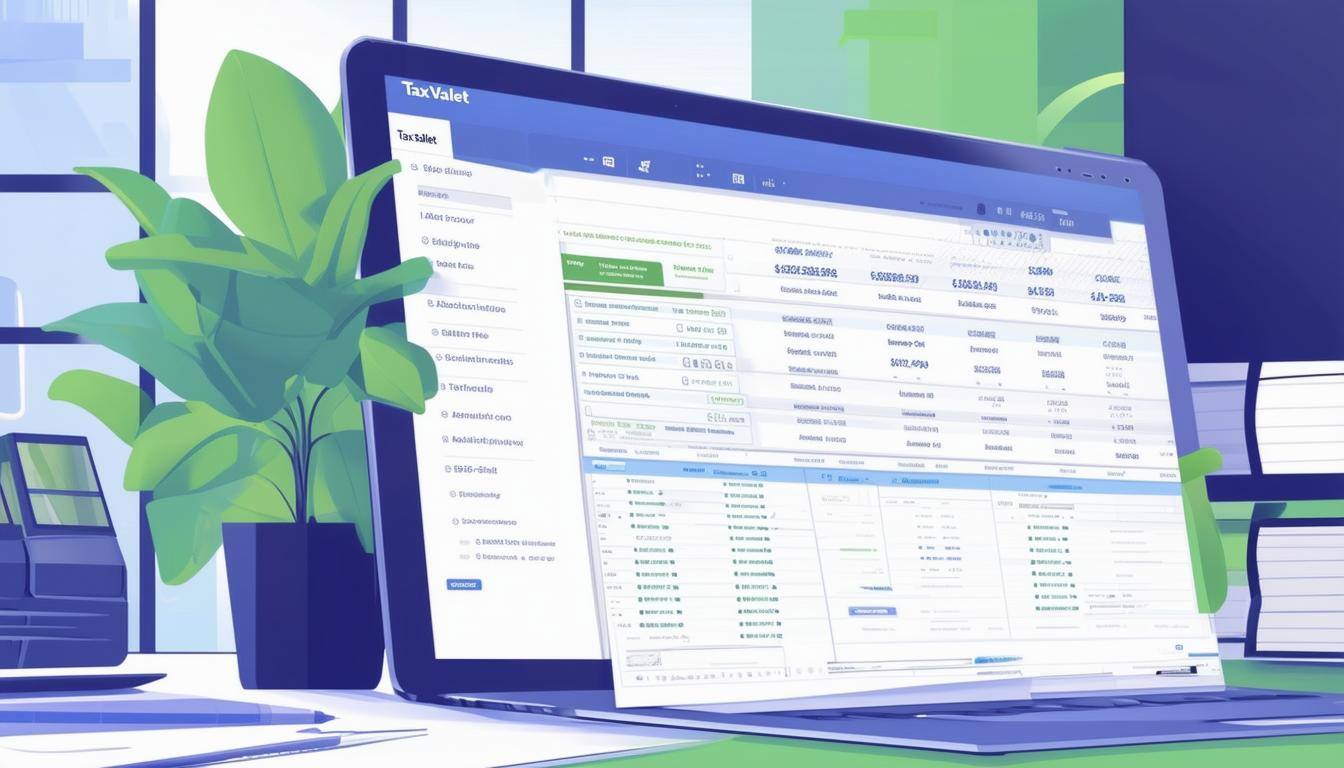A couple of years ago, we were contacted by a CPA company that had gotten themselves into a bad situation.
Luckily, we were able to turn things around to help the CPA and their client, but it's a story every accountant, bookkeeper, CPA or other tax advisors should hear (or read, in this case).
One of their sales reps had made a commitment to a client during the sales process that they would take care of the clients sales tax nexus.
The deal was that the client would use tax software to automatically calculate the sales tax. Then the accounting firm would do the nexus analysis once a year to make sure nothing was missed.
This sales rep made this assurance on the advice and permission of a mid-level manager.
But this mid-level manager didn't understand the complexities and nuances involved in calculating sales tax. So everyone assumed it was going to be way easier than it actually was.
The first problem they came across was that the client had so many transaction records that Excel couldn't even load them for the company to do the analysis. This is a frustrating technical issue, but it also emphasizes the scale of the job they agreed to do for the client.
The bigger problem, though, was that the products weren’t taxable in every state.
So they had to spend hours and hours trying to figure out the taxability of the product. To do this, they had to research each individual states' laws and definitions, then analyze the details of the product to determine whether it matched the definition or not.
This was such a pain in the ass the first year that when year 2 rolled around, they wanted out.
But they were professionals, so instead of leaving their client high and dry, they came to us at TaxValet to do the nexus analysis.
We agreed, and got to work on the data they sent us. And that's when we quickly realized they were missing a huge piece of the puzzle.
There’s more than one type of nexus
As soon as we started looking at their records, it became clear that they were only focused on economic nexus during their analysis and didn't consider physical presence.
This can include things like employees, contractors, trade shows, etc. that are physically in that state.
This also includes ecommerce businesses storing inventory in a third party warehouse. They hadn't realized that their client was storing inventory in an FBA (Fulfillment by Amazon) warehouse.
We knew this was going to be a trigger, and it turned out they had missed fourteen states in that first nexus analysis.
So, the client wasn't collecting sales tax in those 14 states on the advice of this partner.
This mistake could have resulted in a some pretty dire consequences if we hadn’t spotted it:
- Financial penalties: States are able to impose substantial fines on businesses for non-compliance. Commonly starting at 25% of unpaid tax liabilities.
- Back taxes: You’ll likely be required to pay back taxes for a period where you should have been collecting and remitting sales tax.
- Interest charges: Interest is typically charged on unpaid tax amounts, on top of the penalties themselves.
- Criminal penalties: In the most serious of non-compliance, it’s possible for criminal charges to be filed. This can result in hefty fines and even prison time.
- Audits: If you’re found to be non-compliant, it heavily increases the risk of being audited by state tax authorities in the future.
- Reputational damage: It can seriously damage customer trust if lawsuits or your non-compliance becomes common knowledge. This hit on your reputation can have both short and long-term implications.
- Legal costs: It’s not cheap dealing with tax authorities or dealing with lawsuits, and the bills will quickly pile up.
Luckily for our partner, the client was really cool about it, and we were able to sort it all out in the end. We were able to do this by engaging in a voluntary disclosure agreement process to save the client from a whole bunch of penalties.
But unless you understand nexus well and know how to carry out accurate nexus analysis, you probably won't be so lucky.
Need help managing sales tax for your clients? Apply to become a partner with TaxValet and see how we can support CPAs like you. Learn more.
Different types of sales tax nexus
The first step in taking control of your sales tax nexus is understanding the different types that are likely to affect your business. This isn’t intended as a comprehensive guide to follow, but it should give you the key information you need to understand each one.
Physical Nexus
The traditional standard for establishing sales tax obligations, physical nexus is about where your business has a tangible physical presence in a state.
There are a few common factors that could create physical nexus in a state:
- Having a physical office, store, or warehouse
- Having employees or contractors in that state
- Storing inventory
- Owning or leasing commercial property
- Attending trade shows or conventions
Physical nexus can be relatively straightforward for smaller shops and businesses, but like we talked about before, can cause issues for online businesses where it’s harder to determine nexus.
Physical nexus rules can vary from state-to-state, so you always need to check individual state laws for your products.
Economic Nexus
Economic nexus, on the other hand, has no connection to physically doing business in a state. Instead, it’s the connection between your business and a state based on your economic activity.
This is triggered once you exceed certain thresholds of sales revenue, or sometimes a defined number of transactions in a state.
These thresholds vary by state, but as an example, a common threshold for annual sales is $100,000 or 200 separate transactions.
Once the threshold has been met and economic nexus has been established, you’re then required to collect and remit sales tax in that state.
Implemented in nearly every state, economic nexus applies almost exclusively to online retailers that might have no physical presence in a state but still sell to customers in that state.
Affiliate Nexus/Click-Through Nexus
Affiliate nexus (sometimes referred to as ‘click-through nexus’) is based on relationships between out-of-state sellers and in-state ‘entities’.
As an example, say there's a website based in Texas that sells tech, but doesn’t have any physical stores or employees outside of Texas. But they do partner with a tech review blog based in New York that includes affiliate links to the online shop. And when readers click this link to make a purchase, the review blog earns a commission.
In this scenario, the online shop based in Texas may be considered to have affiliate nexus in New York, because of the affiliate relationship with the review site, even if the customers themselves aren’t in New York.
Many states have enacted affiliate nexus laws, and the thresholds vary, with some as low as $10,000 in annual sales from affiliate referrals.
This means that if you use affiliate marketing programs to promote your products or services, you need to carefully monitor your affiliate nexus across different states.
Here’s a better idea: partner with us!
As you’ve probably picked up during this blog — sales tax nexus is really complicated.
It’s full of complexities and nuances that can trip you up in a hundred different ways.
Which is why that CPA company we mentioned before quickly became our partner, and now we're embedded in their onboarding process.
When they get a new client and don't already have their sales tax managed properly, they bring us in. We'll identify any potential exposure and determine if there is any cleanup work that needs to be done to make sure your liabilities and obligations are minimized.
We're also part of their annual check-in process, so if a client doesn't have it managed already, they'll introduce them to us.
The end result is that the partner has the peace of mind that their clients are collecting the correct sales tax, and the client has the peace of mind that they're not going to face any of the ramifications we talked about earlier.
The partner also benefits financially, because we have a revenue sharing program with all of our partners. So instead of investing the time and energy into learning all this, and taking on the risk involved, you can just bring us in and you get a kickback on any money we make.
We’re also very aware of how easy it is to assume a piece of software can do all of this for you instead, but these tax tools are simply not fit for purpose. You need to have complete confidence in your clients sales tax, including the sales tax nexus, and software can't give you this.
Instead, you need to be talking to sales tax experts who know it inside out and can help you and your clients navigate those murky waters.
We’re those experts.
Get a dedicated team of sales tax experts on your client’s side. Apply to become a partner
Disclaimer: Our attorney wanted you to know that no financial, tax, legal advice or opinion is given through this post. All information provided is general in nature and may not apply to your specific situation and is intended for informational and educational purposes only. Information is provided “as is” and without warranty.
What you should do now
- Get a Free Sales Tax Plan and see how Tax Valet can help solve your sales tax challenges.
- Read more articles in our blog.
- If you know someone who’d enjoy this article, share it with them via Facebook, Twitter, LinkedIn, or email.



